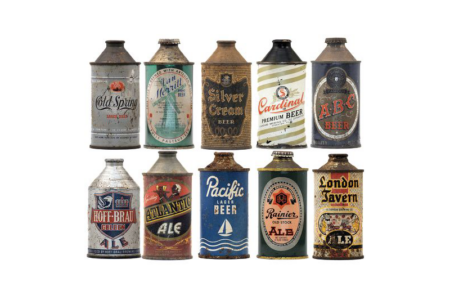Could DRS spell trouble for aerosol recycling?

Patrick Heskins, chief executive of the British Aerosol Manufacturers’ Association, talks to CanTech about Deposit Return Schemes and aerosol recycling.
Each year the UK uses around 600 million aerosols. With approximately 50 per cent of aerosols made from tinplated steel, and the other half from high-grade aluminium, this represents almost 30,000 tonnes of reclaimable metal that can be recycled each year.
However, the landscape for recycling post-consumer packaging waste is changing. This is not surprising given the move towards a circular economy.
In June this year, both the Waste Framework and Packaging Waste Directives were amended to incorporate elements of the EU Circular Economy package aimed to encourage the recycling of waste into new materials within the EU.
The key policy instrument is Extended Producer Responsibility (EPR), which requires waste producers to provide a financial contribution of between 80 per cent and 100 per cent of the necessary costs of meeting the recycling targets.
Significantly however, the amended Waste Framework Directive also permits the use of DRS as a means to encourage efficient collection of used products and materials. Previously it has been argued that DRS was a technical barrier to trade and so was counter to the single market.
The amended Packaging Waste Directive also sets new recycling targets for 2025 and 2030 for plastic packaging (50 per cent and 55 per cent), aluminium packaging (50 per cent and 60 per cent) and ferrous metal packaging (70 per cent and 80 per cent).
Implementation
It is not yet clear how the UK will implement the amended directives as the 24-month implementation period is significantly after Brexit and waste management is set to be devolved to the four National Administrations. However, DEFRA has stated its ambition to become a world leader in resource efficiency promising to review the PRN system, consider restrictions on single-use packaging and examine the use of DRS to increase recycling of on-the-go packaging.
In England, DRS remains subject to consultation, but in Scotland, it is already a reality. For the aerosol sector, the question is how the loss of drinks containers to DRS will impact on the way in which used aerosols are collected and recycled and what this means for industry. Key to all of this is the issue of waste classification.
Most post-consumer, empty or waste aerosols contain residual flammable contents such as LPG, ethanol or other solvents. These residual levels are sufficiently low that when mixed with other waste, aerosols are not classified as hazardous. If a significant proportion of drinks containers are removed from kerbside collections however, post-consumer aerosols would compromise a greater percentage of the total waste and consequently DRS could result in the need for segregation. The end result is that aerosols would be classified as hazardous waste.
In addition to removing certain materials from existing kerbside collections, there are a number of other factors to consider when seeking to understand how DRS might impact upon current aerosol recycling practices. For instance, DRS that uses reverse vending machines as the collection mechanism is not suitable for aerosols as the machine crushes the can, which would lead to the release of flammable gases. Local authorities are also generally not in favour of DRS, as their focus us upon higher value materials such as aluminium and ultimately, bespoke DRS to take aerosols are likely to be prohibitively expensive to operate.
It is also important to consider the investment made by organisations like BAMA and the UK’s leading metal packaging manufactures, reprocessors and packer-fillers, in programmes like MetalMatters, designed to help local authorities and motivate residents to recycle more by supporting the UK’s current kerbside recycling schemes. These investments and communications campaigns have helped metal packaging recycling reach record levels and today, more that 95 per cent of local authorities accept empty aerosols in their kerbside collection or can bank schemes.
DRS in Europe
It is pertinent to note at this juncture that while DRS are in operation across Europe in countries such as Germany, Sweden, Denmark and Norway, all of which use a reverse vending machine or can bank system, all countries except one introduced DRS before kerbside collections. The impact of DRS on kerbside collections is extremely difficult if not impossible to gauge, based upon the experiences of these countries.
Clearly, if DRS results in aerosols being collected separately and local authorities are forced to treat the bulk collection as hazardous waste, the result is that thousands of tonnes of metal would be lost from the circular economy every year.
This does not mean that there is not a valid role for DRS. On the contrary, by limiting DRS to on-the-go drinks containers of all materials, it can play a significant role in reducing litter, protecting the environment and helping to achieve a circular economy DRS materials should also be mixed with separately collected fractions of the same materials for recycling to prevent the need for reclassification under the waste regulations .
Meanwhile, local authorities are likely to find themselves tasked with increasingly challenging recycling targets and there is no avoiding the reality that kerbside collections will play an integral role in achieving these targets. Industry-funded schemes like MetalMatters therefore remain critical.
And as we move closer to the implementation of DRS in England, BAMA continues to work with its members and the wider industry, investigation new disposal routes, developing guidance and driving innovation in design, exploring ways in which aerosols can be depressurised when empty, making them even safer to recycle in existing kerbside systems or as part of a DRS and to avoid classification as hazardous waste when collected separately.
This feature article is restricted to logged-in paid subscribers.
Login or subscribe now to view this exclusive content.



